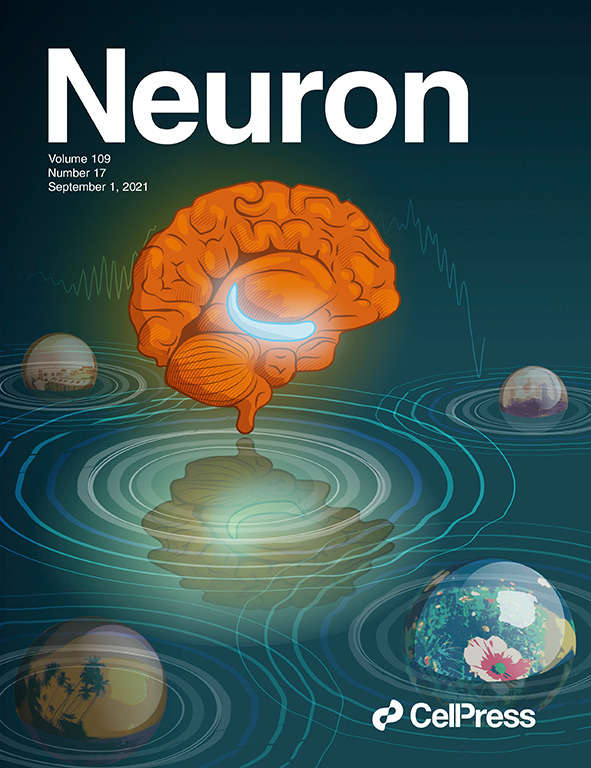男性疼痛驱动阿片类药物使用的意想不到的中介-雌激素。
IF 15
1区 医学
Q1 NEUROSCIENCES
引用次数: 0
摘要
服用阿片类药物缓解疼痛的男性发生适应不良和过量的风险最高,但疼痛状态和阿片类药物使用之间的性别特异性神经生物学联系尚未确定。在这一期的《神经元》杂志上,Higginbotham等人发现雌二醇是一种有效的中脑多巴胺能活性抑制剂,可以选择性地减少男性芬太尼的摄入。本文章由计算机程序翻译,如有差异,请以英文原文为准。
An unexpected mediator of pain-driven opioid use in males-estrogen.
Men who take opioids to relieve pain are at the highest risk for maladaptive misuse and overdose, but a sex-specific neurobiological link between pain states and opioid use has not been identified. In this issue of Neuron, Higginbotham et al.1 identify estradiol as a potent suppressor of midbrain dopaminergic activity that selectively reduces fentanyl intake in males.
求助全文
通过发布文献求助,成功后即可免费获取论文全文。
去求助
来源期刊

Neuron
医学-神经科学
CiteScore
24.50
自引率
3.10%
发文量
382
审稿时长
1 months
期刊介绍:
Established as a highly influential journal in neuroscience, Neuron is widely relied upon in the field. The editors adopt interdisciplinary strategies, integrating biophysical, cellular, developmental, and molecular approaches alongside a systems approach to sensory, motor, and higher-order cognitive functions. Serving as a premier intellectual forum, Neuron holds a prominent position in the entire neuroscience community.
 求助内容:
求助内容: 应助结果提醒方式:
应助结果提醒方式:


